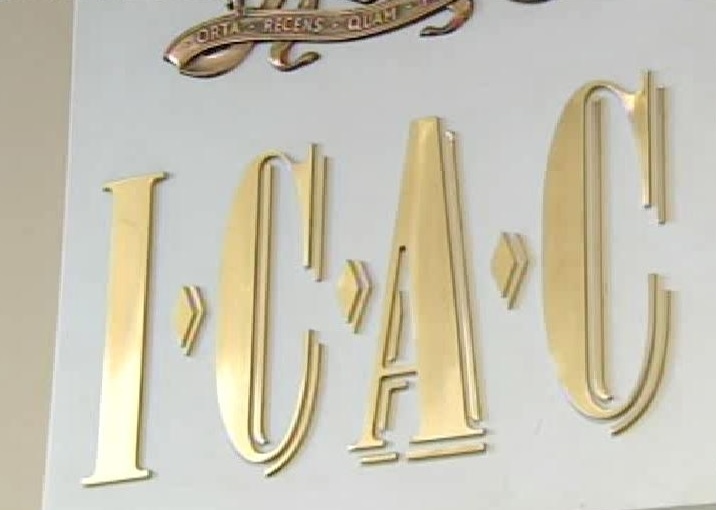

The Independent Commission Against Corruption has refused to lift a suppression order over key documents from three completed inquiries because it believes it is not in the public interest for a committee of the NSW parliament to know what they contain.
The suppression order, under section 112 of the ICAC Act, prevents former Labor mining minister Ian Macdonald from revealing the contents of submissions he made to ICAC inquiries, known as Operations Jasper, Acacia and Jarilo.
Mr Macdonald says ICAC has only partly referred to those submissions in reports that refer to him adversely and the suppression order prevents him from making that information available to the agency’s independent inspector, David Levine, and the parliamentary committee that oversees ICAC.
ICAC has found that Mr Macdonald engaged in corrupt conduct over the allocation of mining exploration licences, and he has been charged with misconduct in public office.
His lawyers asked the commission on June 11 to lift the suppression order so there could be greater public debate about the subject matter of the three inquiries.
They told ICAC he believed it was in the public interest to release the submissions because ‘the commission made findings that only partly refer to the submissions” and he wanted to present them to other organisations such as the parliamentary committee that monitors ICAC.
On June 23, ICAC replied that Commissioner Megan Latham “has carefully considered your application to vary the section 112 orders relating to the submissions, however, is not satisfied that it is in the pubic interest to do so”.
This comes soon after Commissioner Latham clashed repeatedly with the state parliamentary committee that oversees her agency when she declined to answer questions about ICAC’s failed pursuit of prosecutor Margaret Cunneen SC.
She told the committee in August that some of its questions were ‘traversing an operational matter” and the committee was not permitted to “re-investigate” matters.
Mr Macdonald told The Australian he wanted his submissions made public because he believed the community should have the opportunity to see his side of the story. “I initially wanted to release it to show there was considerable dispute about the narrative the commission was trying to project,” Mr Macdonald said.
“The submission is a demolition of ICACs case” he said. In a complaint to ICACs independent inspector David Levine, Mr Macdonald’s lawyers, Bilbie Dan, have urged the inspector to ask ICAC for a copy of the suppressed submissions “as Mr Macdonald is prevented from disclosing what is in the submission”.
“In the last correspondence from the commission, reference was made to provisions of the ICAC Act which provide a penalty up to one year’s jail for unauthorised release,” says the complaint, which was written on June 15.
“This approach by the ICAC was unfair and prejudiced Mr Macdonald’s ability to defend himself in the public domain, especially given the overwhelmingly biased media reporting of the public hearings, the highly prejudicial opening addresses by the counsel assisting the commission and the failure of the commissioner to agree to any defence right of reply either at the opening or conclusion of the public hearings,” the complaint says.
In response to an earlier request to lift the suppression order, ICAC solicitor Roy Waldon told Mr Macdonald’s lawyers on May 5 last year that the submissions had been made to help the commission determine what findings, opinions and recommendations should be made. “Publication of the submissions is not relevant to this task,” wrote Mr Waldon who is executive director of the commission’s legal division.
The commission’s refusal to lift its suppression order has come to light soon after Mr Macdonald obtained transcripts of ICACs private compulsory hearings which reveal witnesses, including Labor frontbencher Anthony Albanese, gave evidence in his favour that was never made public According to Mr Macdonald’s lawyers the transcripts contain “considerable evidence which is exculpatory to Mr Macdonald”.
The exculpatory material was not revealed during ICACs public hearings and should have been incorporated into the agency’s final report, his lawyers say.
CHRIS MERRITT
LEGAL AFFAIRS EDITOR
Published with Permission. Source: The Australian
